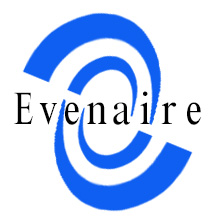Completing the search for your first home is thrilling. You’re probably trying to keep track of numerous details about making the right choice. We believe that gaining insight into your future HVAC system is crucial. The property’s HVAC system represents a substantial investment and source of potential long-term costs, which is why due diligence is important for first-time homebuyers.
In the following guide, we’ll outline seven tips for discovering all there is to know about a home’s heating and cooling system. And if you want a deeper opinion from the experts, feel free to call Evenaire Heating & Air Conditioning. Our staff can weigh in on your options with industry insights you won’t find elsewhere.
1. What Type of HVAC System Is It?
Start by identifying what type of HVAC system the home has. Furnaces tend to last longer than air conditioners, and relatively new types of HVAC equipment like heat pumps feature average life spans longer than ever. Tracking down the make and specific model provides a much better sense of how much it might cost in upkeep over time.
2. How Long Ago Was the System Installed?
It’s just as smart to learn how old the HVAC system is when you’re considering a potential new home. On average, HVAC systems tend to run for about 10-12 years. Having the knowledge of when it was installed helps you plan for possible repair needs or considerations if it might eventually stop working. Older systems are at a higher risk of problems, so fiscal planning for a replacement unit could be necessary sooner than you thought.
3. Is the Warranty Still in Effect?
Be sure to check the HVAC system is still under warranty. If it is, you’ll appreciate how it can help with maintenance costs. HVAC warranties often cover parts and labor, but the details in each policy will vary. Review any terms that aren’t familiar to make sure you fully understand your coverage and any possible out-of-pocket costs.
4. Does the System Have a Documented Maintenance History?
Take a close look at the maintenance history of the HVAC system, if the records are accessible. This service history can reveal if the repair needs are high or how often maintenance is performed. Ask about records for key tasks like filter changes, which can indicate it received regularly scheduled tune-ups.
5. What Are the Energy Efficiency Ratings?
Purchasing a home with a heating and cooling system with strong energy efficiency can lead to lower utility bills and a smaller environmental impact. Check out the seasonal energy efficiency ratio (SEER) ratings for air conditioning as well as the annual fuel utilization efficiency (AFUE) for furnaces. High SEER ratings mean more efficient cooling throughout the season, while higher AFUE ratings mean the fuel is efficiently converted into useable heat.
6. Did You See Any Problems After Completing an Informal Inspection?
Even if you don’t have experience in HVAC systems, you should still check out the HVAC system yourself. Watch closely for potential issues that weren’t mentioned by the seller or real estate agent. This might consist of odd sounds, spots with uneven heating or cooling and attempts at concealing any serious damage.
7. Have You Sought Out Expert Advice?
If you’re unsure about the overall state of the HVAC system, it’s beneficial to get an assessment and recommendation from trained HVAC professionals. They are skilled at identifying things you may not know about, including leaking coolant, wiring issues or damaged ductwork.
A Call with Evenaire Heating & Air Conditioning Simplifies Your Home-Buying Journey
Selecting your first home should be thrilling, and Evenaire Heating & Air Conditioning can ensure it stays that way. Get in touch with us at 512-355-1482. We can talk about how our HVAC services give you peace of mind, giving you what you need to dive into home-ownership with confidence.



